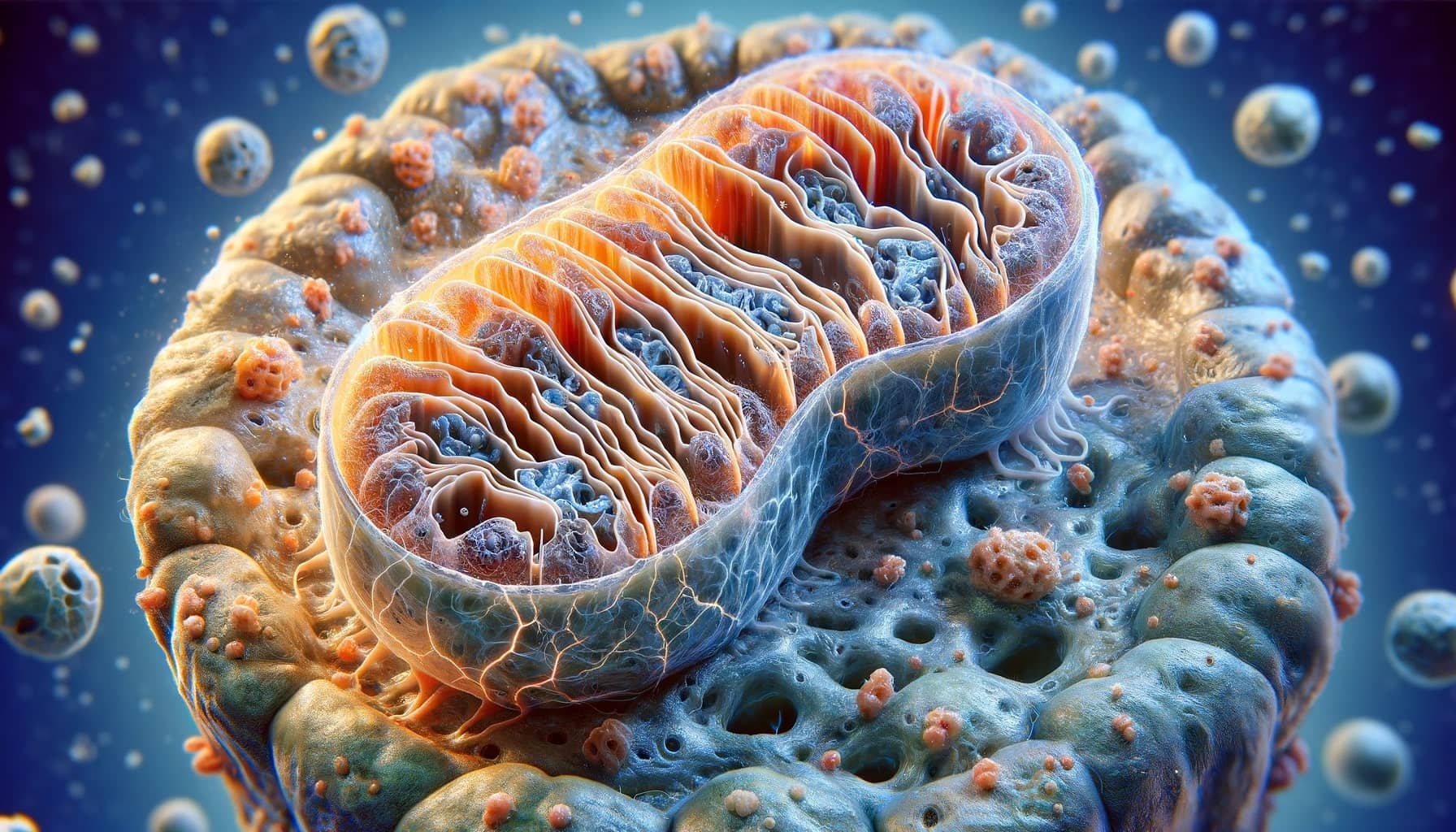
The Powerhouse Problem: How Mitochondrial Dysfunction Affects Aging
Mitochondria, known as the powerhouses of our cells, do much more than just produce energy. They play significant roles in processes like inflammation and cell death, and their malfunctioning is a major indicator of aging.
How Mitochondria Influence Aging
Besides energy production, mitochondria initiate inflammation and cell death. As we age, changes in their DNA, unstable components, reduced turnover, and behavioral changes cause them to function less effectively. Consequently, they struggle to meet the cell’s energy demands, produce more reactive oxygen species (ROS), and might even rupture accidentally.
Boosting Health by Supporting Mitochondria
We can improve mitochondrial function to enhance health during aging. For example, older individuals might benefit from L-carnitine supplements, which aid mitochondria in using fats for energy. Experiments show that slightly reducing mitochondrial activity early in life can extend animals’ lifespans, a phenomenon known as “mitohormesis.” This process triggers stress responses like the mitochondrial unfolded protein response (UPRmt), which can promote longevity.
Mitochondria and Staying Metabolically Healthy
In older mice, treatments that modestly decrease ATP production by mitochondria have improved metabolism. TPP-thiazole, for instance, mildly inhibits mitochondrial ATP synthesis, triggering a beneficial cellular stress response that enhances overall function and efficiency. Consequently, TPP-thiazole may improve energy utilization, reduce oxidative stress, and promote healthier aging in cells. Another treatment, controlled release mitochondrial protonophores (CRMPs), reverses metabolic syndrome in older mice by inducing mitophagy. This process of breaking down and recycling mitochondria is crucial for maintaining cellular health, as it removes damaged or dysfunctional mitochondria, improving energy metabolism and potentially reducing age-related metabolic disorders.
Small Proteins from Mitochondria with Big Roles
In humans, small proteins like humanin and MOTS-c, produced by mitochondria, significantly impact the aging process and overall health.
Humanin levels generally decrease with age, but are notably higher in centenarians, suggesting a link to increased longevity and health. It counteracts some effects of IGF1, a growth-promoting hormone involved in aging. By opposing IGF1, humanin may protect cells from aging and age-related diseases.
MOTS-c, known for metabolic regulation, increases with physical exercise and activates AMPK, a key energy sensor. This activation promotes better insulin sensitivity and helps prevent insulin resistance, a common metabolic disorder issue. MOTS-c also aids in obesity prevention by influencing fat processing and storage, enhancing energy efficiency, which is vital as our metabolism slows with age.
Future Treatments for Mitochondrial Issues
Researchers are exploring treatments for mitochondrial dysfunction. Elamipretide, targeting the inner mitochondrial membrane, has shown promise in mice and human trials for Barth syndrome. Antioxidants like MitoQ and SkQ1 are under study for addressing mitochondrial aging issues.
Looking Forward
Focusing on mitochondrial health could significantly combat aging and promote longevity. With various approaches, from supplements to novel therapies, we might mitigate aging effects and maintain cellular and bodily health. Research in this area is crucial for understanding the link between mitochondria and aging.
